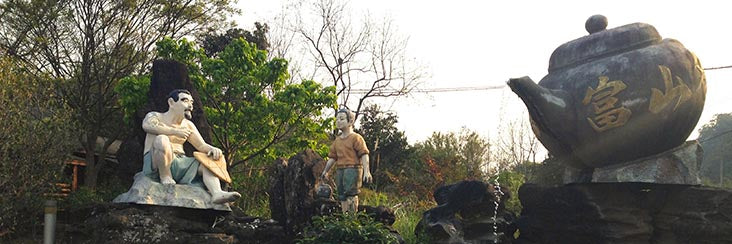
The Quest for Oriental Beauty
Our tea advisors, Tony and Lisa Lin have taught tea culture seminars at the local farmers’ association in Emei, meeting local farmers, and they referred me to a young, progressive farmer who I visited a couple days ago. He left his tech job in the nearby Science Park a few years ago to inherit the management of his father’s tea farm. It was a pivotal decision in his life, and one that he speaks of with modest pride. He has since educated himself by enrolling in intensive courses offered by the Tea Research Extension Station (TRES) and Farmers’ Associations. Of course he had grown up on a tea farm, and learned by osmosis in his youth.

He has already innovated the production of his family farm to include the production of Black Tea, Baozhong Oolong Tea, and Green Tea in addition to Oriental Beauty – which is only harvested twice a year. The yield of Oriental Beauty is a small fraction of the harvests of other tea types. This is due to the fact that Oriental Beauty Tea is the result of a small insect called a leaf hopper (Jacobiasca formosana) that feeds on new tea leaf buds seasonally. To produce Oriental Beauty, no pesticides are used at all during the growing season, so as not to deter these bugs.The growth of the leaves are stunted as a result, but produce a very distinctly flavored tea –which is said to have been given its name by the queen of England in the 19th century because she was so fond of it.
After tasting both last year’s late spring and late fall harvests of Oriental Beauty, he brewed a pot of last summer’s Black Tea, which was also of very high quality. The price reflects the rarity of this traditional tea from a small family farm, but I eagerly bought some of each and promised to be back for future harvests. In classic Taiwanese fashion, his mom insisted that I take a complimentary bag of their organically grown oranges home with me.




